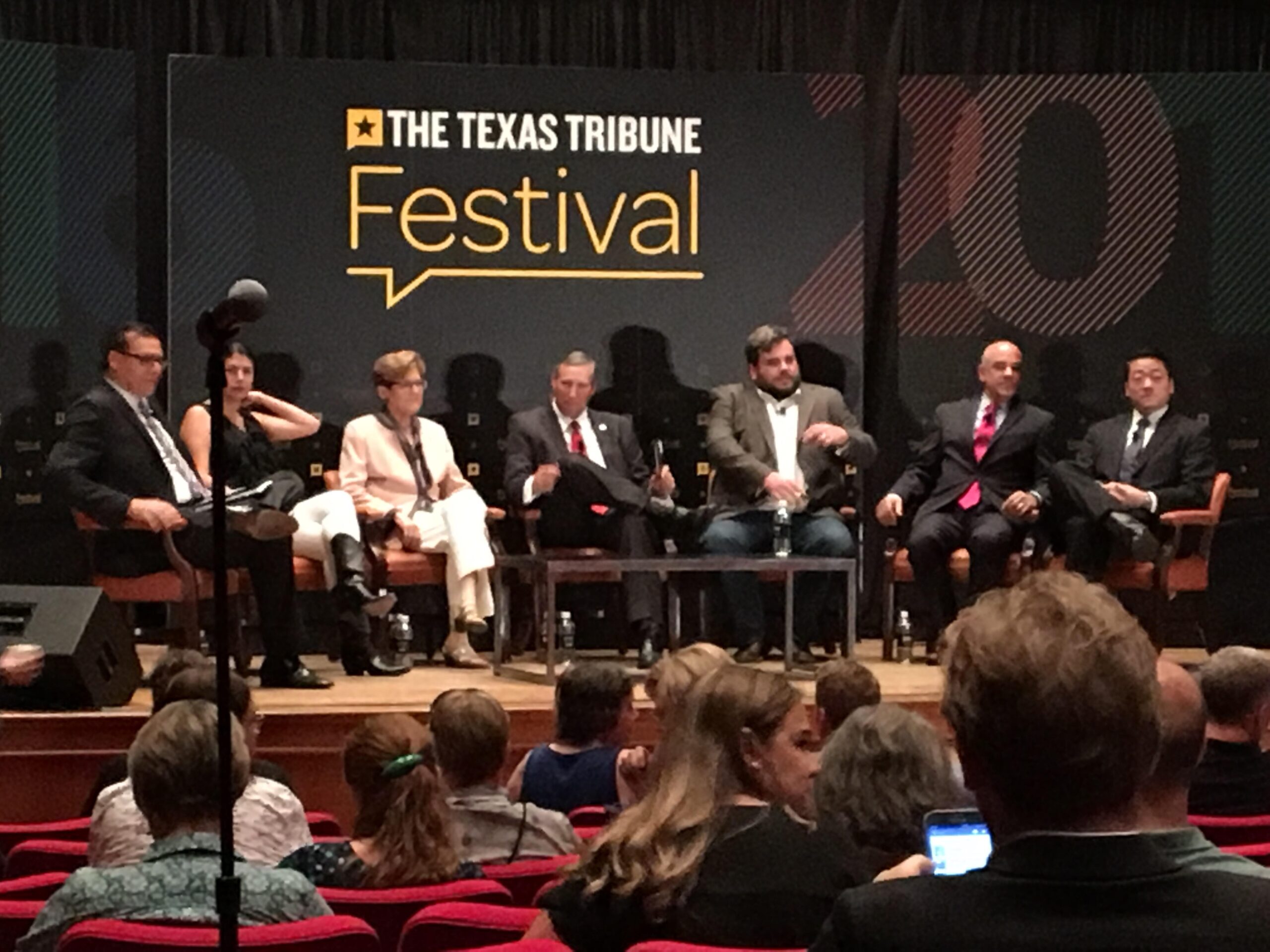Photo: Molly Adler
The session covering the Texas House Agenda for the next legislative session at the Texas Tribune Festival went relatively smoothly considering that many of the six politicians on stage had diametrically opposing viewpoints. It was mostly the same political infighting one would expect at any level of government. The panel was comprised of Representatives Carol Alvarado (D-Houston), Linda Koop (R-Dallas), Drew Springer (R-Muenster), Jonathan Stickland (R-Bedford), Chris Turner (D-Grand Prairie) and Gene Wu (D-Houston). The moderator did a reasonably good job of keeping everyone on track for the first half, but lost control in the second. Stickland and Wu were the major talkers, taking up most of the panel’s time with political bickering.
The moderator, Jim Henson (director of the Texas Politics Project and faculty at the UT Department of Government), opened the panel with a question addressed to all participants: what would be the main focus of the next session. Alvarado, the first to his left, said that the next House session will be focused on budgets, bathrooms, borders and transportation network companies (TNCs), relating to the city regulation that caused UBER and Lyft to leave Austin. “Alphabet soup” she said.
The moderator asked her to narrow it down to a single main focus. She managed to whittle her list down to the budget. Alvarado wanted to focus on finding other revenue streams. Turner jumped in with a comment that the “budget is a moral doctrine,” and he brought up that 1 in 4 children in Texas live in poverty.
Moving left, Koop pointed out that she was part of the appropriations committee looking at the education system, driving down property tax and meeting the educational needs of Texas children. With the larger concerns already mentioned, Springer wanted to focus on things that he acknowledged didn’t grab headlines – mental health and prison overcrowding.
At this point Henson commented on the looming debate coming on Medicaid. Which unsurprisingly was a major contention point on the panel for a few minutes with a clear partisan divide. Wu, who ended up being one of the most outspoken of the panel, said that for sake of saving face, the state of Texas will expand Medicaid only when it becomes so embarrassing that they have not.
Stickland was quick to fire back with a comment about Obamacare, how it “hasn’t helped,” and how the system is broken. His final comment, which struck several in the audience as particularly funny, was that “Government needs to stay out of the way between Texans and their doctors.” Unfortunately, it is nearly impossible to talk about health care without talking about women’s health, which led into a debate on abortion. To his credit, the moderator took care to steer away from a topic which could easily overtake the entire panel, a difficult task when there are so many passionate politicians serving on one panel.
Most of the panel session played out in a similar Democrat vs. Republican fashion, with extra care being shown to educational funding. Once again Stickland and Wu argued, this time about school vouchers. The second best soundbite of the evening going to Wu with, “I appreciate your concern for my district, but they don’t want school vouchers. They want solid public schools.”
Then the panel ended with a small discussion on state rights vs. county or local rights, mostly centered on TNCs and the recent flight of Uber and Lyft from Austin due to the new city ordinance. The best soundbite of the panel was Wu’s response to Stickland’s commentary on the States’ creation of the Union: “I don’t think the 10th amendment works the way you think it does.”
Edited by: Joel Dishman

